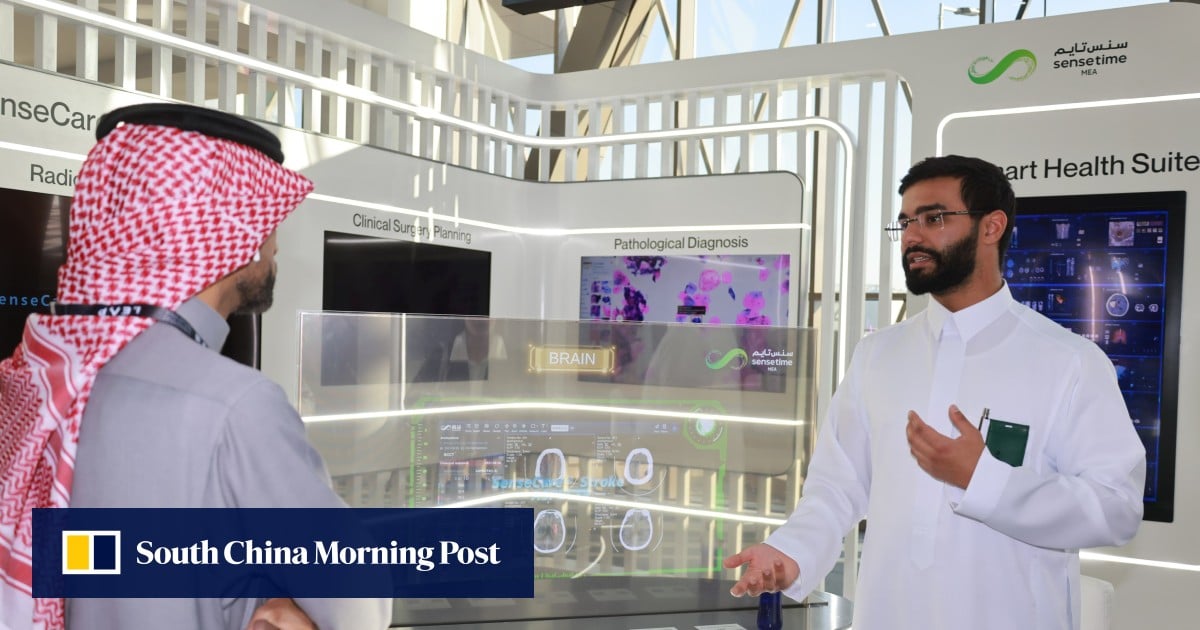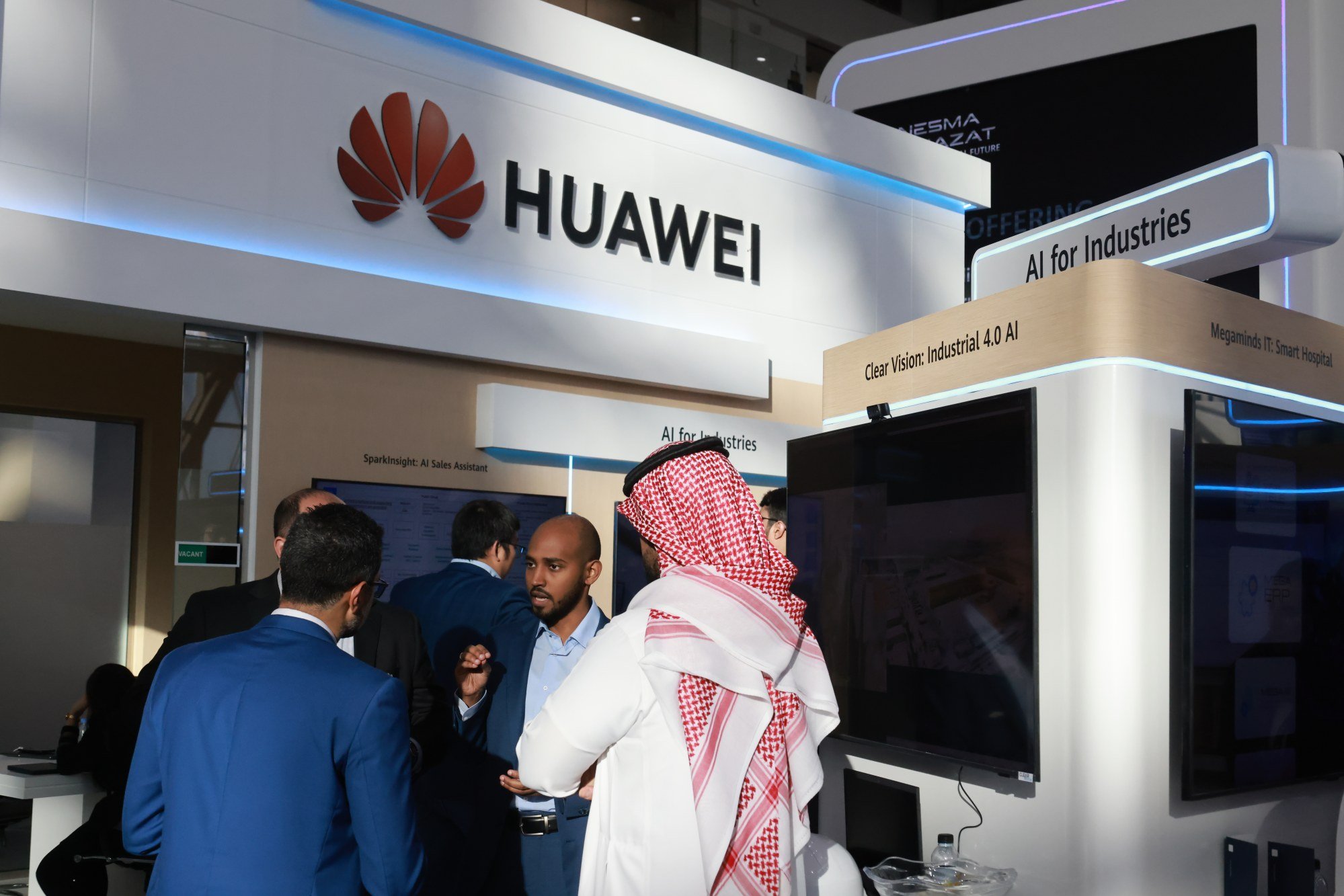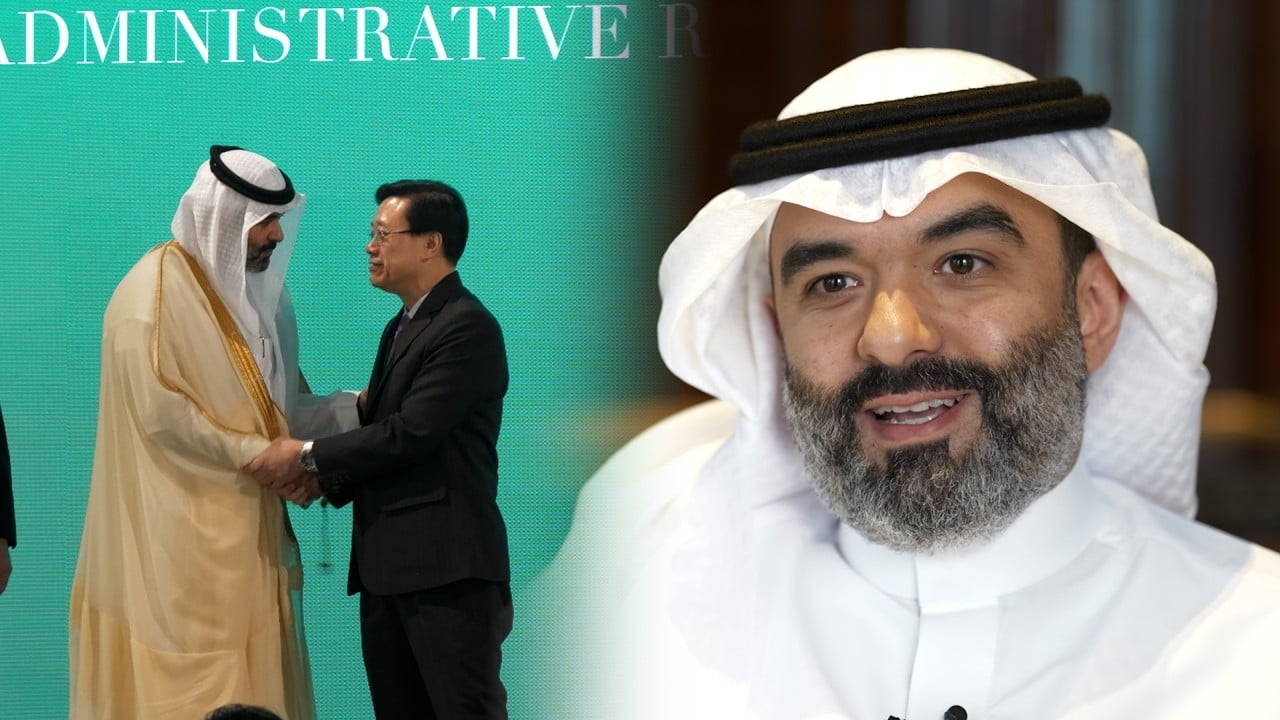
05 Mar Hong Kong start-up hubs expand city’s collaboration with Saudi Arabia to forge closer ties a year after John Lee visit
The third annual Leap event is the first to feature a Hong Kong pavilion, where HKSTP and Cyberport had eight and seven companies exhibiting, respectively.
“I really think that health tech is a big area, ESG [environmental, social and governance] is a big area, construction is a big area,” Wong said. “Efficiency is an issue, lack of manpower is a big deal … The whole region is looking at transforming their economy from oil into other things.”
Among the health tech start-ups at the event were Cornerstone Robotics, which designs robots to help with surgery, and GenEditBio, a gene-editing company that attended to sign an MOU with the Saudi company Anwa BioSciences.
In a busy first day at the packed Riyadh Exhibition and Convention Centre, Hong Kong representatives and companies held panel discussions and met Saudi officials to tout the city’s tech prowess and the benefits it has to offer.
Saudi Arabia’s Vice-Governor of Research, Development and Innovation Authority Abdulrahman Alsufvani told Hong Kong Secretary for Innovation, Technology and Industry Sun Dong on the sidelines of the event that he was looking forward to further collaboration
“We would like to visit … the science parks over there and hopefully activate what we agree on in the next couple of days to build the bridges,” Alsufvani said. “We believe in what you have done. You have successful stories over there. We need to now strengthen these businesses between the two.”
In addition to the other three areas of collaboration, Sun said the “Saudi leadership keeps talking AI” with him.
Chinese big tech firms also had massive booths on display touting their AI cloud offerings.

Smaller companies face bigger hurdles. Some Hong Kong start-ups at the show like speech recognition firm Fano Labs dabble in specific types of AI. Another is Geek+, which builds robots for warehouse automation.
The main focus, though, was on the three areas that Wong mentioned, especially biotech. Sun, too, highlighted Hong Kong’s “strong capability in biotech research”.
The success of the Saudi partnerships, however, could be measured in the types of opportunities that emerge from them. The Hong Kong start-ups were eager to pitch the kinds of business opportunities they were looking for in the kingdom. Beyond just investment, the companies are looking to bring their tech to the market, something HKSTP’s Wong said the group was eager to accomplish.
“We hope that [the start-ups] can find out what the business opportunities are in this part of the world and maybe even come up with a commercialisation plan,” Wong said.

